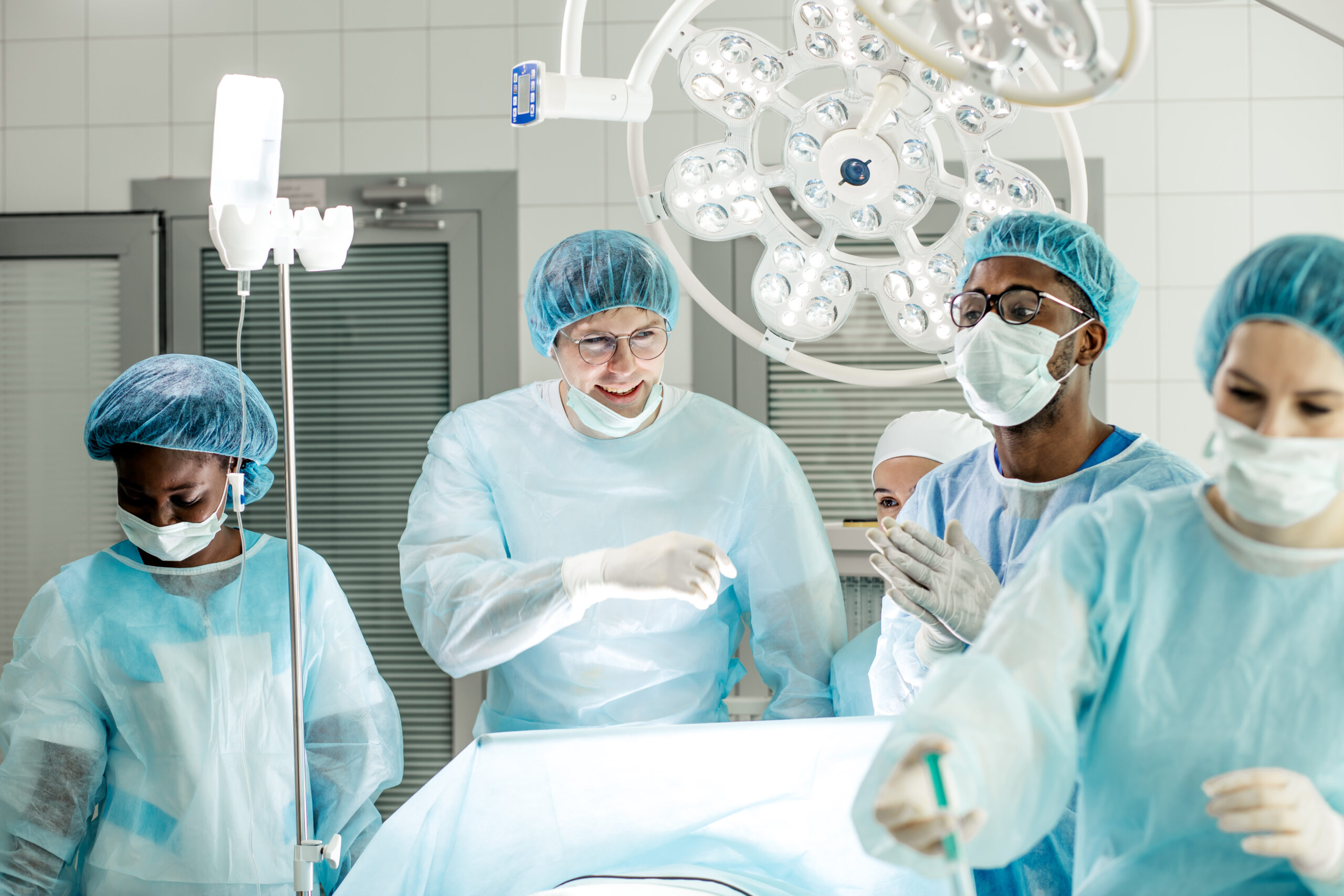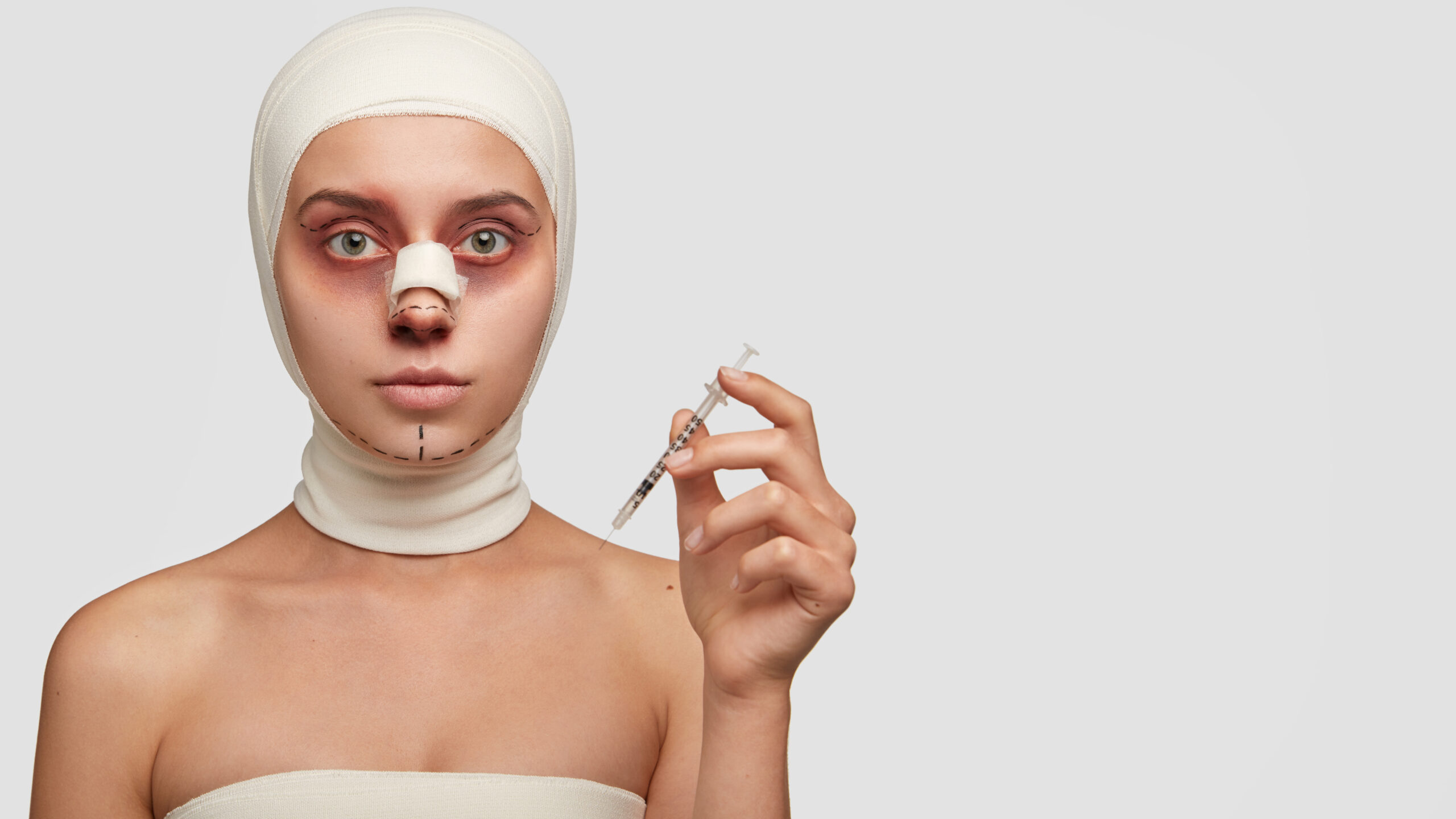Nose Surgery Safety Risks, Benefits & Candidate Eligibility
Key Takeaways: Nose Surgery Risks and Benefits
- Choosing a qualified and experienced surgeon is crucial for a safe nose surgery.
- Be aware of the risks associated with rhinoplasty, such as bleeding or infection, and how to minimize them.
- Good candidates for nose surgery include those without significant health issues and with realistic expectations.
- Preparation for surgery involves a health checklist, avoiding certain medications, and understanding the recovery process.
- Recovery can take several weeks, and it's important to follow your surgeon's post-operative care instructions closely.

On the Nose: Ensuring a Safe and Successful Surgery
When it comes to altering one of the most central features of your face, the stakes are as high as the nose on your face. That's why, before you even consider stepping into a surgery room, it's essential to understand the ins and outs of nasal surgery, more formally known as rhinoplasty. It's not just about the change in your appearance; it's about ensuring your safety every step of the way.
What Makes Nose Surgery Unique?
Nose surgery isn't like changing your hairstyle or trying on a new pair of glasses. It's a permanent transformation that requires careful planning, precision, and a deep understanding of facial anatomy. The nose isn't just for looks; it's a key player in your respiratory system, and any changes made to its structure can affect your breathing.
Aligning Expectations with Realistic Outcomes
Before diving into the surgical details, it's crucial to align your expectations with what's actually achievable. Remember, a successful nose surgery enhances your natural features rather than giving you a new nose altogether. It's about balance, proportion, and, most importantly, enhancing your own unique beauty.
Critical Safety Tips for Prospective Patients
Finding the Right Surgeon
The first step toward a safe nose surgery is finding the right surgeon. This is non-negotiable. You want a board-certified plastic surgeon with a track record of successful nose surgeries. Check their credentials, read patient reviews, and don't hesitate to ask for before-and-after photos of their work. The right surgeon will not only make you feel comfortable but also confident in the journey ahead.
- Verify the surgeon's board certification.
- Read patient testimonials and reviews.
- Request to see a portfolio of their previous work.
Understanding Surgery Credentials and Facility Accreditation
It's not just the surgeon that needs to be vetted; the facility where your surgery will take place must be accredited. This ensures that the place adheres to strict standards for safety, equipment, personnel, and surgeon credentials. Accreditation bodies such as the American Association for Accreditation of Ambulatory Surgery Facilities (AAAASF) set these standards to protect you, the patient.

Pre-Surgery Health Checklist
Once you've found your surgeon and the accredited facility, it's time to prepare your body for surgery. This means getting a full medical evaluation to ensure you're in good health. You'll also need to stop taking certain medications that can increase bleeding, such as aspirin or ibuprofen, several weeks before surgery. And if you smoke, you'll need to quit—smoking can delay healing and increase the risk of complications.
- Get a comprehensive medical check-up.
- Avoid medications that can cause bleeding.
- Quit smoking well in advance of your surgery date.
The Rewards: Benefits of Nose Surgery Beyond Aesthetics
Many people think nose surgery is all about looks, but it's much more than that. Rhinoplasty can correct structural issues that cause chronic congestion and breathing problems. It can also fix a deviated septum, which not only improves breathing but can also reduce or eliminate chronic sinus infections. These functional improvements are often life-changing for patients.
A successful nose surgery can also have a positive impact on sleep quality by alleviating conditions like sleep apnea. This leads to better overall health, as quality sleep is critical for the body's ability to repair and rejuvenate itself.
Moreover, nose surgery can help with the fit of glasses or even improve peripheral vision in cases where the shape of the nose has obstructed sight. It's these kinds of practical benefits that make rhinoplasty about so much more than just cosmetic enhancement.
Functional Improvements After Rhinoplasty
Imagine going through life with a constant blockage in your nose, making every breath a struggle. Rhinoplasty can clear the way, literally. By correcting the internal structure of the nose, surgery can enhance airflow and function. Patients often report a significant improvement in their ability to breathe deeply, exercise, and even sleep more soundly at night.
The Psychological Impact of Cosmetic Surgery
Let's not underestimate the psychological impact of nose surgery. The nose is a central feature of the face, and changes to its appearance can boost self-esteem and confidence. This emotional uplift can have ripple effects throughout a person's life, improving social interactions, personal relationships, and overall mental well-being.
Are You a Good Candidate for Nose Surgery?
Not everyone is a good fit for nose surgery. Ideal candidates are generally healthy, non-smokers with realistic expectations about the outcomes. It's also important that your facial growth is complete, which typically happens in late adolescence. Your motivations should be driven by a desire for improvement, not perfection.
Another factor is your skin type. Thicker skin can mask subtle changes while very thin skin can make underlying irregularities more apparent. Your surgeon will assess your skin during the consultation and discuss how it may affect your results.
Medical Conditions and Rhinoplasty
Some medical conditions can complicate nose surgery or the recovery process. For instance, patients with bleeding disorders, heart conditions, or those who are immunocompromised may face additional risks. Always be upfront with your surgeon about your medical history so they can plan your surgery and aftercare accordingly.

Lifestyle Factors Affecting Surgical Eligibility and Recovery
Your lifestyle plays a big role in both your eligibility for nose surgery and your recovery. Active smokers, for example, are at a higher risk for healing complications. Excessive alcohol consumption can also interfere with the healing process. A commitment to a healthy lifestyle not only helps with a smoother recovery but also contributes to the longevity of your surgical results.
Preparing for the Big Day: Pre-Surgery Best Practices
- Stop taking blood-thinning medications and supplements, such as aspirin, ibuprofen, and vitamin E, as advised by your surgeon.
- Avoid alcohol and tobacco for at least two weeks before and after surgery.
- Stay hydrated and eat a balanced diet rich in nutrients that promote healing.
- Arrange for someone to drive you home after the surgery and stay with you for the first 24 hours.
- Prepare your recovery area at home with essentials within easy reach, like medications, water, and a phone.
As you get closer to the surgery date, it's natural to feel a mix of excitement and nerves. The best way to ease those nerves is to be as prepared as possible. This means following your surgeon's instructions to the letter, which includes fasting before the surgery if required. Your surgeon will give you specific guidelines based on the time of your surgery and any personal medical considerations.
Diet and Medications: What to Avoid
In the weeks leading up to your surgery, it's important to avoid certain foods and medications that can increase bleeding risk or interfere with anesthesia. This includes not only aspirin and ibuprofen but also herbal supplements, green tea, and foods rich in omega-3 fatty acids. Your surgeon will provide a comprehensive list of what to avoid.
Mental Preparation: Setting Yourself Up for Success
- Understand the surgical process and set realistic expectations for recovery and results.
- Practice relaxation techniques to manage anxiety, such as deep breathing, meditation, or listening to calming music.
- Prepare mentally for the downtime during recovery and plan activities that don't require physical exertion, like reading or watching movies.
- Stay positive and remind yourself why you're undergoing surgery and the benefits you're looking forward to.
Mental preparation is just as important as physical preparation. Surgery, even elective cosmetic surgery, is a significant event, and it's normal to feel anxious or worried. Talk to your surgeon about any concerns you have; they can provide reassurance and may also recommend resources for emotional support.
Landing Back on Your Feet: Post-Surgery Recovery Explained
Recovery from nose surgery is a gradual process. Immediately after the surgery, you'll likely feel groggy from the anesthesia. You'll have a splint on your nose to protect it and help maintain its new shape. Swelling and bruising are normal and will peak a few days after surgery before gradually subsiding.
It's crucial to follow your surgeon's instructions for care during this time. They'll give you guidelines on how to clean your nose, manage pain, and when you can return to normal activities. Most importantly, be patient with your body as it heals and give yourself the time you need to recover fully.

ACT NOW! GET A FREE CONSULTATION - TODAY ONLY!
CALL US NOW TO LEARN MORE ABOUT HOW A BROKEN NOSE IS REPAIRED BY A PLASTIC SURGEON! 346-413-9313
Don’t miss this exclusive opportunity to get expert advice and begin your journey towards a new, confident you. Texas Sinus and Snoring's dedicated team is ready to help you achieve the results you've always wanted. Contact us today to schedule your free consultation and take the first step towards a better, more confident you!
